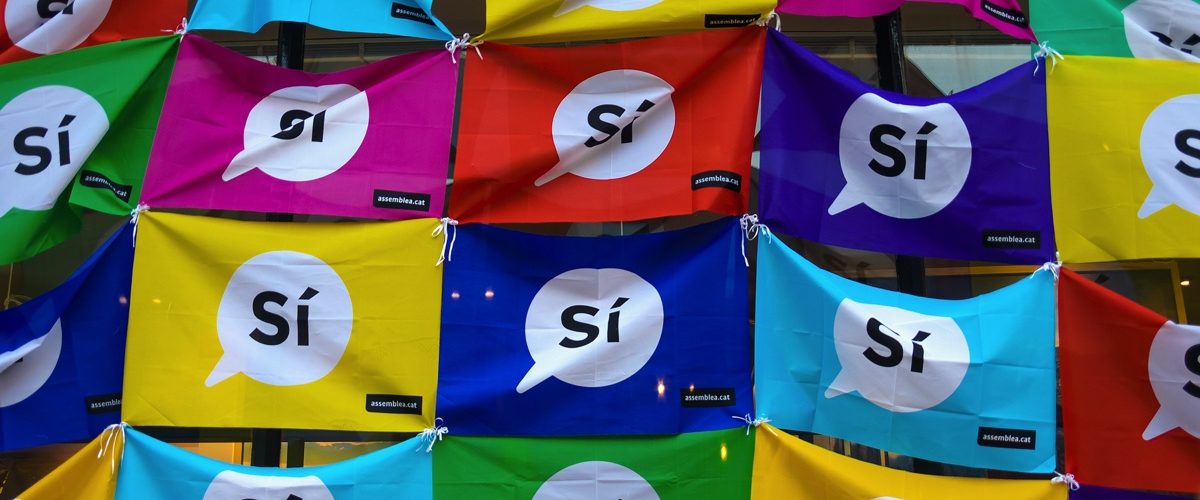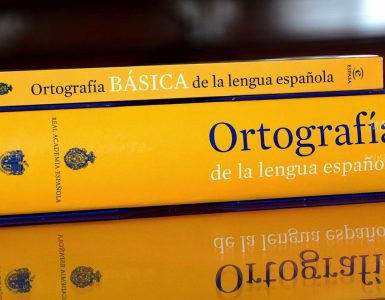Table of Contents
As in English slang, in Spanish we have many ways of saying yes, and like all other expressions, each statement depends on the moment and the person we are talking to. In this article, I present the different ways of saying yes in Spanish, both formal and informal, as well as in which countries they are used.
‘Of course’ in Spanish
The different variations of “of course” in Spanish are claro que sí, por supuesto y desde luego. All three have something in common and that is that besides being exclamatory statements, they correspond to the forms of saying yes in Spanish most used in all countries, both in formal and informal situations.
| Spanish | English |
|---|---|
| ¿Irás mañana a la reunión de trabajo? | Are you going to the business meeting tomorrow? |
| ¡Desde luego! | Yes, of course! |
| ¿Estuviste en la fiesta el fin de semana pasado? | Were you at the party last weekend? |
| ¡Claro que sí! | Yes, of course! |
| ¿Jugaremos PlayStation en mi casa después de clases? | Will we play PlayStation at my house after school? |
| ¡Por supuesto! | Yes, of course! |
‘Okay’ in Spanish
Other ways of saying yes in Spanish are está bien and bueno, being neutral affirmative responses and popularly used throughout the Spanish-speaking world. In most cases, they correspond to responses to different commands, as follows:
| Spanish | English |
|---|---|
| Ve al refrigerador y búscame un vaso de agua. | Go to the refrigerator and get me a glass of water. |
| Está bien. | Okay. |
| Mañana debes presentarte en el ensayo antes de las 14:00 horas. | Tomorrow you must be at the rehearsal before 2:00 pm. |
| Bueno. | Okay. |
‘All right’ in Spanish
The usual forms of “all right” in Spanish are de acuerdo, vale, dale and sale. While de acuerdo has a versatile and widespread use in all Spanish-speaking countries as the previous expressions, the same is not true for these last three.
The use of de acuerdo can be exclamatory or neutral, it all depends on our tone of voice and whether we are answering a question or a command, like this:
| Spanish | English |
|---|---|
| ¿Puedes ir a la tienda y traerme 200 gr de mantequilla? | Can you go to the store and bring me 200 grams of butter? |
| ¡De acuerdo! No tardaré mucho. | All right! I won’t be long. |
| Mañana te toca hacer el café en la oficina. | Tomorrow it’s your turn to make coffee in the office. |
| De acuerdo. | All right. |
As for vale, sale and dale, each one is used in different countries in a colloquial and everyday way. Vale is common in Mexico and Spain, sale in Mexico and dale in other Latin American countries such as Argentina, Colombia, Uruguay, Venezuela, and many others.
| Spanish | English |
|---|---|
| ¿Podéis enviarme la tarea por correo más tarde? | Can you mail me the assignment later? |
| Vale. | All right. (Spain) |
| Vamos por unos tacos en la esquina. | Let’s go get some tacos on the corner. |
| Sale | All right. (Mexico) |
| ¿Me acompañas al supermercado mañana? | Will you accompany me to the supermarket tomorrow? |
| Dale. | All right. (Everywhere else) |
They also serve to suggest, propose and invite, as follows:
| Spanish | English |
|---|---|
| Ven a la boda de mi hermana este sábado, ¿vale? | Come to my sister’s wedding this Saturday, okay? |
‘Done’ in Spanish
Expressions such as dalo por hecho! and hecho! are also ways of saying yes in Spanish. They are used to affirm an action or order, having a similar usage to de acuerdo. Attempts to express affirmation or confirmation about a specific event, in this way:
| Spanish | English |
|---|---|
| Quedamos a las 6 pm en mi casa? | Let’s meet at 6 pm at my house? |
| ¡Dalo por hecho! | Done! / You bet! |
| Mañana vamos por un helado y luego por una pizza. | Tomorrow we’ll go for ice cream and then a pizza. |
| ¡Hecho! | Done! |
‘Correct’ in Spanish
This is also a slightly more formal or technical statement, used in work and academic settings. Widely used in all countries, correcto always answers questions, and can also suggest hesitation at the end of a sentence, like this:
| Spanish | English |
|---|---|
| Usted asistió ayer a la conferencia, ¿correcto? | You attended the conference yesterday, didn’t you? |
| Sí jefe, yo pasé la asistencia ayer. | That’s right boss, I did go. |
| El ensayo de Geografía es para el jueves? | The Geography essay is due on Thursday? |
| Correcto. | That’s correct. |
‘Perfect’ in Spanish
On the other hand, perfect is an expressive affirmation of pleasure that, like correcto, is used in academic, work and formal environments. It works to approve some action and even to congratulate, in this way:
| Spanish | English |
|---|---|
| He traído lo que me pediste. | I brought what you asked for. |
| ¡Perfecto! Muchas gracias. | Perfect! Thank you very much. |
| Ya está lista la monografía de la clase de Historia. | The monograph (essay) for the history class is ready. |
| Perfecto. | Perfect. |
Other similar, standard and well-known statements to say yes in Spanish are the following:
| Spanish | English |
|---|---|
| Me parece bien. | Seems good to me. |
| ¿Por qué no? | Why not? |
| ¡Sin duda! | Definitely! |
| ¡Cómo no! | Of course! |
| Por ti, lo que sea. | Anything for you. |
| Por ti, cualquier cosa | Anything for you. |
| Efectivamente | Indeed |
| ¡No lo dudes! | Don’t even doubt it! |
| No te puedo decir que no. | I can’t say no to you. |
All of the expressions above can be used in both formal and everyday situations.
Next, I want to discuss different ways of saying yes in Spanish in mostly informal settings which have a slightly more slangish element to them.
‘Yup’ and ‘Yep’ in Spanish
The equivalent of yup or yep in Spanish is Simón because although this is a very common first name throughout the Spanish-speaking world, it is also an idiomatic expression which many young people and cooler adults have adopted. It is used in a select group of Latin American countries, including Mexico, Ecuador, Honduras, Colombia and Bolivia.
| Spanish | English |
|---|---|
| Oye wey, ¿conoces la rola tan chida que está sonando? | Hey mate, do you know that cool song that’s playing? |
| Pues Simón, es la nueva de “Cuarteto de Nos”. | Simón, it’s the new one by “Cuarteto de Nos”. |
Another more extended way of ‘yup’ and ‘yep’
‘Sip’ and ‘Sipo’ is a recent colloquialism that emerged among young people with the use of social networks. It is the literal translation of ‘yep’ and ‘yup’ and is another way of saying yes in Spanish in one of the most informal ways there is. Being a term that others may perceive as “too cute” in conversations between young people, it is often seen written or texted, so adults probably won’t understand it if it is used in a conversation with them.
| Spanish | English |
|---|---|
| ¿Checaste que pasó ayer en el Edomex wey? | Dude, Did you see what happened yesterday in the state of Mexico? |
| Sipo carnal, tremenda catástrofe. | Yup dude, a total catastrophe. |
‘Uh-huh’ in Spanish
The Spanish word for ‘uh-huh’ or ‘Mmhmm’ is Ajá. It is used when we are busy or distracted, however, by varying the tone of voice it can also mean a lack of respect indicating indifference towards the person who is speaking to us.
| Spanish | English |
|---|---|
| ¿Me estás prestando atención? | Are you paying attention to me? |
| Ajá, te estoy escuchando. | Uh-huh, I’m listening. |
Arre
In Mexico and Spain they use arre as they use vale and its variants dale and sale. It is used to affirm and show agreement to a statement, taking into account that it is a colloquial word among young Spanish speakers and that when addressing adults they will probably not understand it.
| Spanish | English |
|---|---|
| ¡Venga tío! ¿Vais a la casa de Ana esta noche? Si que estará guay. | Come on, man! Are you going to Ana’s house tonight? It’s gonna be cool. |
| ¡Arre chaval! No me lo perdería por nada del mundo. | Of course kiddo! I wouldn’t miss it for the world. |
Conclusion
Now that we have reviewed the best expressions and ways of saying yes in Spanish, put them into practice and have fun learning more about the different expressions of each region. This will be especially useful if you want to go on vacation to a Spanish-speaking country.










Add comment